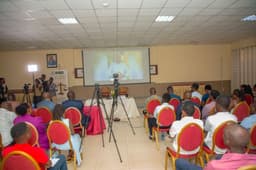
Chinas population has declined for three consecutive years Image: CFOTOpicture alliance
In a landmark move to tackle its deepening demographic crisis, China has unveiled its first nationwide childcare subsidy aimed at encouraging families to have more children. Beginning in 2025, parents across the country will receive 3,600 yuan (£375; $500) annually for each child under the age of three, as part of a wider policy shift designed to reverse years of declining birth rates.
Announced on Monday, the initiative marks a significant expansion of earlier local schemes and is expected to benefit over 20 million families each year. The subsidy will be exempt from income tax and will not be counted as household earnings when determining eligibility for other forms of state assistance such as welfare or extreme hardship aid.
The measure comes amid mounting concerns about China’s shrinking population and rapidly ageing society. Despite the abolition of’the country’s controversial one-child policy nearly a decade ago, birth rates have continued to slide, threatening the long-term sustainability of the world’s second largest economy.
Birth rates rebound slightly, but concerns persist
According to the National Bureau of Statistics, 9.54 million babies were born in China in 2024—a modest increase from the previous year. But the overall population continued to shrink for the third consecutive year. Meanwhile, the number of people aged 60 and above surged to 310 million by the end of 2024, putting additional strain on the country’s healthcare and social security systems.
The cost of raising children has been a key factor discouraging many couples from having more children. A recent study by the China-based YuWa Population Research Institute found that raising a child to the age of 17 costs Chinese parents an average of $75,700—making it one of the most expensive countries in the world to raise a child in relative terms.
Local governments have been experimenting with various incentives. Earlier this year, Hohhot, the capital of Inner Mongolia, began offering residents up to 100,000 yuan per baby for couples with at least three children. Similarly, Shenyang, a city in northeast China, offers 500 yuan per month to families with a third child under the age of three. Last week, Beijing called on local authorities to prepare plans for implementing free preschool education.
A decade of shifting policy
The new subsidy forms part of a broader shift in family planning policy that began nearly ten years ago. After scrapping the one-child policy in 2015, authorities allowed couples to have two children in 2016 and extended that to three in 2021. However, the hoped-for baby boom never materialised. Birth rates and the total number of newborns declined for seven consecutive years until the slight rebound in 2024.
While it remains to be seen whether this nationwide subsidy will be enough to significantly alter demographic trends, the message from Beijing is clear: reversing population decline is now a national priority. (BusinessDay)



























NEWS EXPRESS is Nigeria’s leading online newspaper. Published by Africa’s international award-winning journalist, Mr. Isaac Umunna, NEWS EXPRESS is Nigeria’s first truly professional online daily newspaper. It is published from Lagos, Nigeria’s economic and media hub, and has a provision for occasional special print editions. Thanks to our vast network of sources and dedicated team of professional journalists and contributors spread across Nigeria and overseas, NEWS EXPRESS has become synonymous with newsbreaks and exclusive stories from around the world.